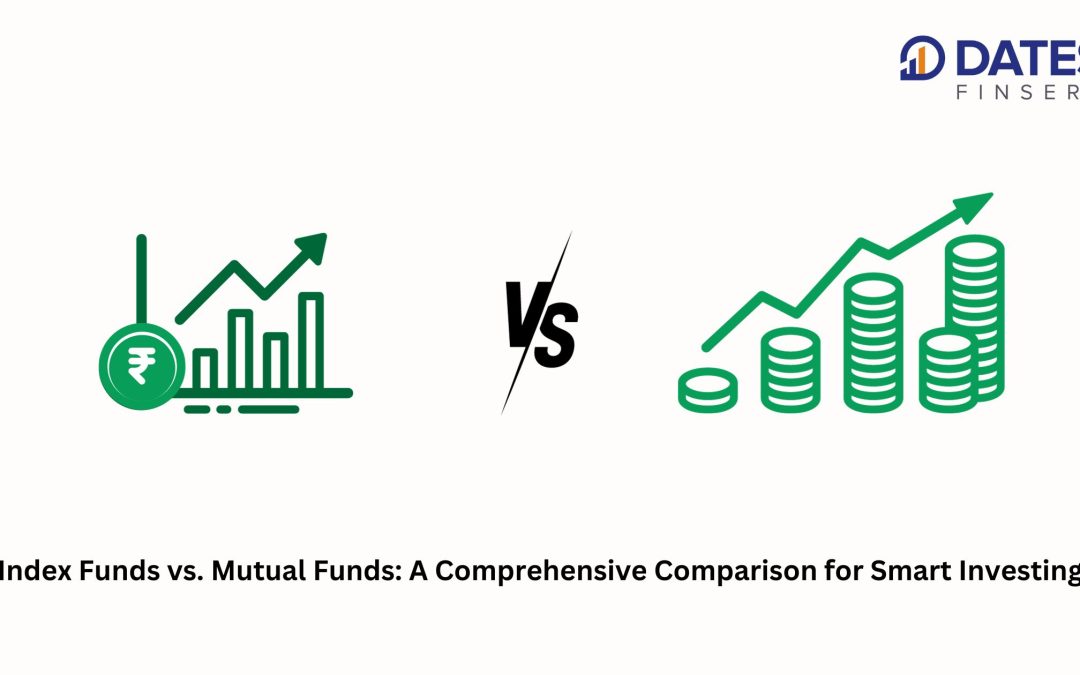In the dynamic world of investing, two prominent choices stand out—index funds and mutual funds. Understanding their unique characteristics, advantages, and disadvantages is vital to making informed investment decisions. In this article, we’ll delve deep into the distinctions between index funds and mutual funds, empowering you to optimize your investments.
Understanding Index Funds
Index funds, a subset of mutual funds, offer a distinctive investment approach. These funds aim to replicate the performance of specific market indices like the S&P 500 or NASDAQ. Instead of relying on active fund managers to select individual securities, index funds maintain portfolios mirroring the indices they track.
Advantages of Index Funds
1. Cost Efficiency: Index funds typically feature lower management fees and operational expenses than actively managed mutual funds, making them a cost-effective choice for long-term investors.
2. Diversification: Investors in index funds enjoy broad market exposure, effectively spreading risk across diverse assets.
3. Consistent Returns: Since index funds mirror predetermined indices, they offer a level of consistent returns, appealing to risk-averse investors.
Disadvantages of Index Funds
1. Limited Potential for Outperformance: Index funds are designed to match market performance, making them less likely to surpass it. If you seek above-average returns, alternatives may be more suitable.
2. Absence of Active Management: With index funds, you miss out on the potential for active fund managers to seize market opportunities.
Mutual Funds
Mutual funds pool funds from multiple investors to create diversified portfolios of stocks, bonds, or other securities. Unlike index funds, mutual funds are actively managed by professional fund managers who make buy and sell decisions to outperform the market.
Advantages of Mutual Funds
1. Active Management: Mutual funds benefit from professional fund managers’ expertise who actively analyze and adjust portfolios to attain superior returns.
2. Potential for Outperformance: Skillful fund managers may identify investment opportunities leading to returns surpassing market indices.
3. Versatility in Investment Strategies: Mutual funds span various categories, from equity to bond funds, catering to diverse risk appetites and financial objectives.
Disadvantages of Mutual Funds
1. Higher Costs: Active management often results in higher expense ratios and management fees, which can erode returns over time.
2. Risk of Underperformance: Despite active management, many mutual funds struggle to consistently surpass their benchmarks, making them less enticing to some investors.
3. Tax Implications: Frequent trading by mutual fund managers may trigger capital gains taxes for investors.
Making the Choice: Index Funds or Mutual Funds?
The decision between index funds and mutual funds hinges on your investment objectives, risk tolerance, and time horizon. Consider these factors:
1. Cost: If cost minimization is paramount, index funds typically offer lower expenses.
2. Risk Tolerance: If you prefer steady, predictable returns, index funds may better align with your objectives.
3. Active Management: If you believe in the potential of skilled fund managers to outperform the market, mutual funds might be more appealing.
Achieving your financial goals often involves a balanced portfolio that includes both index funds and mutual funds. Diversifying your investments enables you to benefit from their respective strengths, effectively managing risk while aiming for solid returns.
conclusion
In conclusion, index funds and mutual funds are distinct investment options, each with its unique advantages and drawbacks. By grasping the distinctions and assessing your financial goals, you can make informed investment choices that harmonize with your strategy. Whether you choose the passive approach of index funds or the active management of mutual funds, the key to success lies in consistency and a long-term perspective. Begin your journey to optimized investments today!
What is a growth mutual fund? A comprehensive guide for beginners

